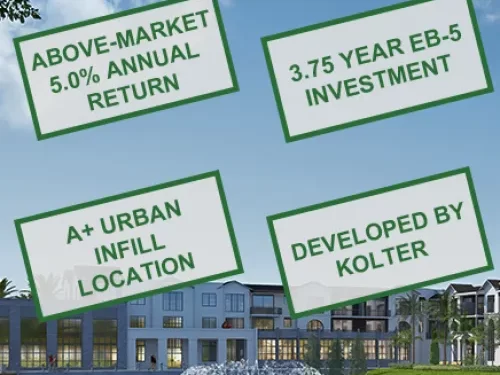The EB-5 Immigrant Investor Program is a USCIS (United States Citizenship and Immigration Services) initiative that grants permanent residency to eligible individuals who invest in new commercial enterprises that create or preserve a certain number of jobs in the United States. One variant of this program is the EB-5 Rural Investment, which is specifically designed to encourage economic growth in rural areas.
What is EB-5 Rural Investment?
EB-5 Rural Investment, also known as the Targeted Employment Area (TEA) Rural program, is a subcategory of the EB-5 Immigrant Investor Program. It allows foreign investors to invest in new commercial enterprises located in rural or economically distressed areas to generate jobs and stimulate economic growth. These areas are typically outside of metropolitan statistical areas (MSAs) or have unemployment rates that are at least 150% of the national average.
The EB-5 Rural Investment program offers several advantages over the regular EB-5 program, including lower minimum investment requirements and a broader definition of “job creation.” In a TEA, the required minimum investment is $900,000 instead of $1.8 million for standard EB-5 investments.
What is the Purpose of EB-5 Rural Investment?
The primary purpose of the EB-5 Rural Investment program is to promote economic growth and job creation in rural areas of the United States. These areas often lag behind in economic development and job opportunities, making it difficult for local communities to thrive. By attracting foreign investment and encouraging the establishment of new businesses, the EB-5 Rural Investment program seeks to address these challenges, create jobs, and ultimately improve the quality of life for residents in these areas.
Moreover, the EB-5 Rural Investment program aids in the revitalization of economically distressed rural areas by providing an incentive for foreign investors to invest in businesses that may not be financially viable under standard EB-5 requirements. The lower investment threshold and broader job creation definition make the program more accessible to a wider range of investors and businesses.
In conclusion, the EB-5 Rural Investment program plays a crucial role in the economic development of rural areas in the United States. By providing foreign investors with the opportunity to invest in new commercial enterprises and generate jobs, the program stimulates economic growth and creates opportunities for local communities. The lower investment threshold and broader definition of job creation make the program an attractive option for both investors and businesses in rural areas.
















